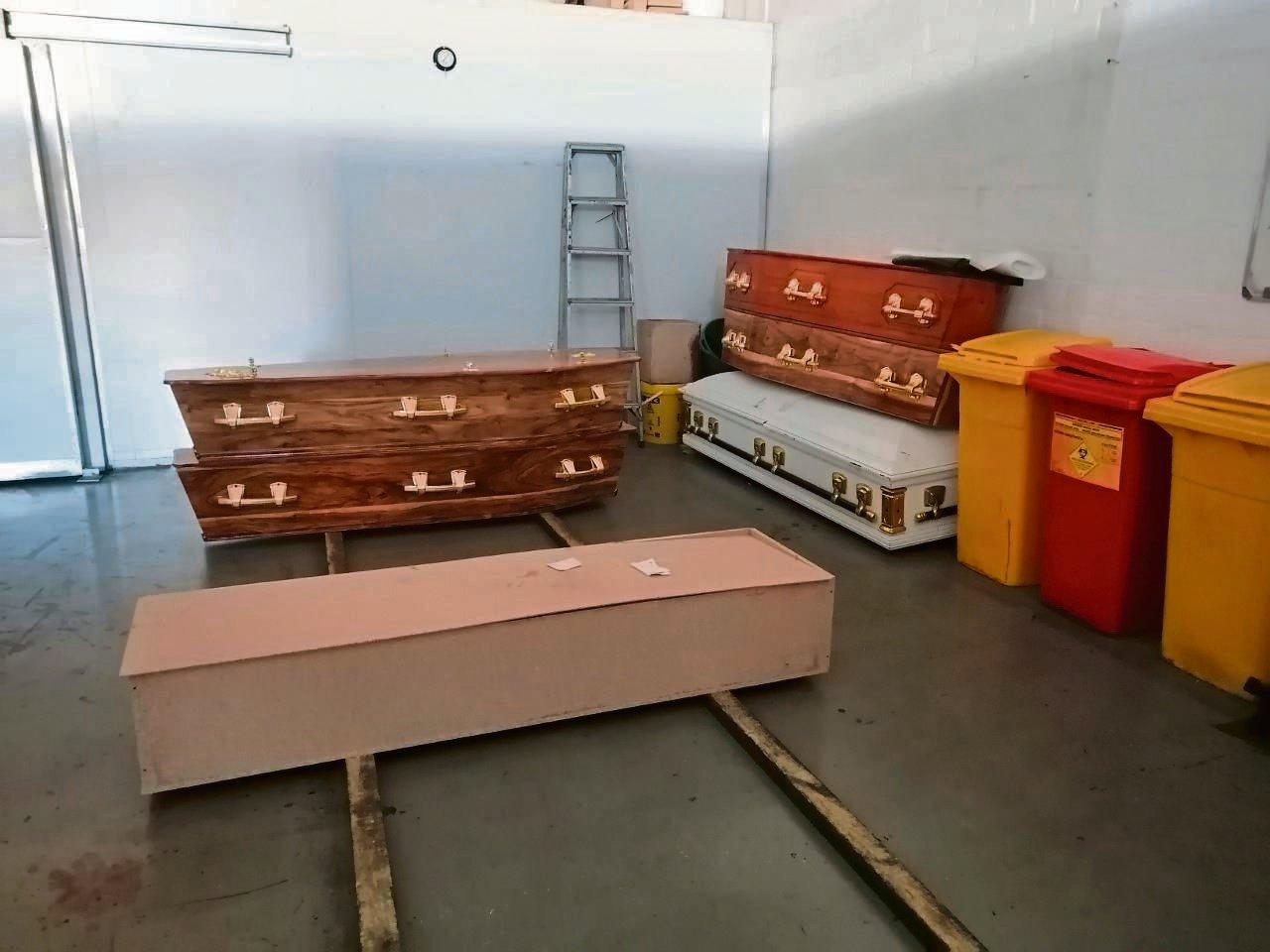Africa-Press – South-Africa. Load shedding is increasing the cost of dying. This is the view of funeral parlours across Cape Town.
Some parlours say the prolonged load shedding is affecting them financially and is causing major delays in services.
Thandile Mqoyi, Operations Manager at Nozinga Funeral Services, says his business is currently running at a loss.
“At the moment we do not break even. We are operating on a deficit. When it comes to profitability and sustainability, it has a negative effect on that. The high rise in operating expenses makes things impossible to operate. As a small business, purchasing a new generator is like a dream that will never come through.”
Mqoyi says their operational costs have risen by over R50 000 monthly.
“Our printer gave in because of load shedding. Now we have to pay an external printing company.”
Monray Adams, the owner of Royal Funerals Cape Town, says the load shedding is costing his business more than R10 000 just to keep its generator running.
Adams says the Ottery-based facility remains operational during load shedding, but this comes at a cost.
“We are fortunate to have a big generator that keeps our building operational because we have a mortuary that must be functional at all times. The load shedding is affecting us because now we have the extra diesel cost. This really puts us in a bad position.”
Adams says this is an expense his business can ill afford and it forces them to increase their prices.
“Our current generator is now due for a service and that will cost about R12 000. Generators are usually used as a backup, but this is now being used daily. Now you have to increase your prices to cover the extra expenses.”
Adams says with the mortuary remaining functional, they do not have challenges with bodies piling up. “We embalm state mortuary bodies so that we do not have issues with bodies decomposing.”
Etienne Beselaar, Operational Branch Manager for Doves in Observatory, says load shedding has a ripple effect on their administrative services.
“If we have to do registrations at Home Affairs and the electricity is off, then we have delays of about three to four days. Secondly, we are unable to reach our clients and it affects our operations. We also cannot communicate with the different branches, so everything is delayed.”
According to Beselaar, their mortuary in Bellville operates with a generator.
“Fortunately, our branch in Bellville runs on the generator, so that remains operational.”
Samantha Fortuin, Receptionist at AVBOB in Maitland, says while they run on a generator, they experienced many challenges. “We had some issues where we were unable to track our transportation for bodies going to the Eastern Cape because we were unable to log into the system. Sometimes we were unable to load into the system the deceased coming to our mortuary so we would have to work after hours.”
Fortuin says payments could also not be processed on time. “Our older clients don’t know how to use internet banking, so they would come into the office to pay, but then we could not load the payments because of load shedding. So, then we would have frustrated clients.”
William Leukes, Chief Executive Officer at His Will Funeral Home, a mortuary in the Airport Industria, says they can survive on two to four hours of load shedding.
“For now we can cope with the two to four hours because the time in between is enough to get our fridges up to the degree that is required. We keep our fridges between two and seven degrees.”
But Leukes says being without electricity for six hours and more is crippling them.
“If the six hours happen then we need to make use of generators which costs us about R3 000 per day just for hiring. That is separate from the diesel cost. If we use it for the six hours that we have load shedding, that will cost us a day’s rent. And we don’t get a discount on renting the generator for a few hours. So, we look at about a R4 000 loss. And for a small business like us, we can hardly take that,” explains Leukes.
Vuyisile Mabindisa, the South African Funeral Practitioners Association’s Secretary General, appeals to the government and relevant stakeholders to consider encouraging families to bury their relatives within a four-day window period.
Mabindisa said in a media statement this would not only reduce the operational costs incurred by the industry but ensure that the deceased are buried with dignity.
“The industry is still recovering from the effects of the Covid-19 pandemic and the extra pressure experienced with the influx of deaths. Therefore, the consideration and cooperation of all parties in promoting a four-day window period between the death and burial will help maintain the viability of the industry.”
For More News And Analysis About South-Africa Follow Africa-Press






